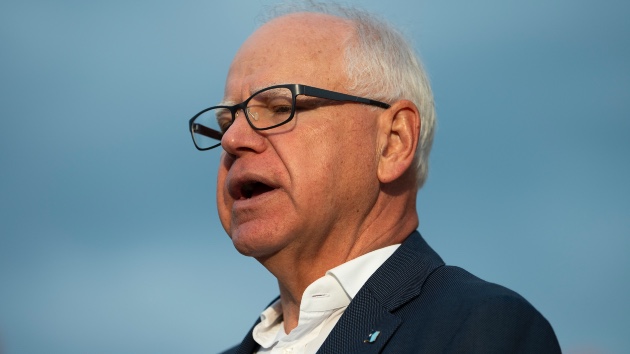Mask restrictions prompt concern, fear from disabled North Carolina residents
Written by ABC AUDIO on May 23, 2024

(RALEIGH, N.C.) — Disabled North Carolina residents say a mask restriction that is under consideration in the state legislature would make it harder for them to access parts of their communities, pushing them back into isolation.
“This law says to them that you are not welcome in our community and we don’t value your presence to accommodate your need to wear a mask,” Tara Muller, a policy attorney at Disability Rights North Carolina, told ABC News.
House Bill 237, dubbed the “Unmasking Mobs and Criminals” bill, would repeal a COVID-19 pandemic exception that allowed people to wear a face mask in public. It allows exceptions for holiday costumes, rituals or ceremonies, theatrical productions, gas masks or employment-based usage, but would remove the ability for someone to wear a mask to ensure “the physical health or safety of the wearer or others.”
Legislators in the North Carolina General Assembly are currently negotiating whether to move forward with repealing the exception, which has faced opposition in the House but was recently passed by the Senate. Meanwhile, disabled residents and their families are stuck in a waiting game, concerned about what this will mean for their future.
The bill is intended to curb the use of face masks to conceal an alleged criminal’s identity.
Supporters have criticized the use of face masks amid ongoing protests against the Israel-Hamas war, since many demonstrators have been seen wearing face coverings: “It’s about time that the craziness is at least slowed down, if not literally stopped,” said Republican bill sponsor Buck Newton, according to Raleigh news outlet WRAL.
Similar restrictions are being considered in other states, while still others are now enforcing mask-wearing restrictions – including New York, Ohio, Florida, and other states.
However, disability advocates say such restrictions infringe on their ability to protect themselves and others.
North Carolina resident Bryan Dooley, who has cerebral palsy and asthma, told ABC News he didn’t leave his house for a year when the pandemic started: “And it’s not an exaggeration,” he added.
He was worried about the potential for a respiratory infection that could turn into something worse. Patients with asthma and cerebral palsy are at increased risk for severe COVID-19 complications, according to the Mayo Clinic.
As someone with a speech impediment, Dooley said it can be hard for him to speak to others while wearing a mask, so the people around him often wear masks for both his and their protection, because he often cannot.
He said the disabled community isn’t asking for much: “They just want to contribute to their community just like anybody else.”
Muller’s organization has said people have reached out with concerns about being able to go to a public health facility, to work, to a grocery store, or to just walk down the sidewalk and potentially being confronted by law enforcement or others trying to enforce mask-wearing restrictions. The concerns have come from people with a plethora of experiences, including those who are immunocompromised, who are undergoing chemotherapy, have had an organ transplant, and more.
Katy Neas, CEO of the disability advocacy group The Arc of the United States, said that masking remains a serious and important issue for many concerned about their health.
“You wouldn’t make a kid who has diabetes eat something that’s going to make them sick. You wouldn’t make a kid with life-threatening peanut allergies, make them eat peanuts. We’ve got to recognize that some kids need these protections for their fundamental health,” said Neas.
Muller said she feels the ban would be a step backward in making the world a more accessible place for everyone, not just people who are disabled or immunocompromised. For example, millions of Americans continue to feel the impacts of COVID-19 and long COVID. There have been more than 100 million recorded cases of COVID in the U.S., while roughly 63 million adults in the U.S. have or have had long COVID..
“We’ve made great strides in allowing people with disabilities in their community in ways that were not possible before. Wearing masks is one way that people can feel comfortable accessing their community when otherwise they have not been able to,” said Muller.
Felicia M. Nurmsen of the National Organization on Disability knows firsthand the impact of long COVID. After developing asthma, as well as experiencing fatigue and a worsening heart condition from her bout of COVID, she said the shift away from public health and safety has been concerning.
“I still have some of the other health challenges … there’s nothing that says that they’ll ever go away,” said Nurmsen.
Nurmsen said the pandemic allowed a widespread effort toward accessibility for all, such as wearing a mask for personal and public health, remote-working options, increased home delivery options and more. She notes that many things that make life easier for all – from automatic doors to escalators – are disabled accessibility features.
“When you see someone masked up on the street, when you’re going into a store and someone has their mask on, never assume that that person does not have a disability, because you don’t know,” said Nurmsen. “It should not be an all-or-nothing proposition, because we have to think about the entire population of people.”
Copyright © 2024, ABC Audio. All rights reserved.






